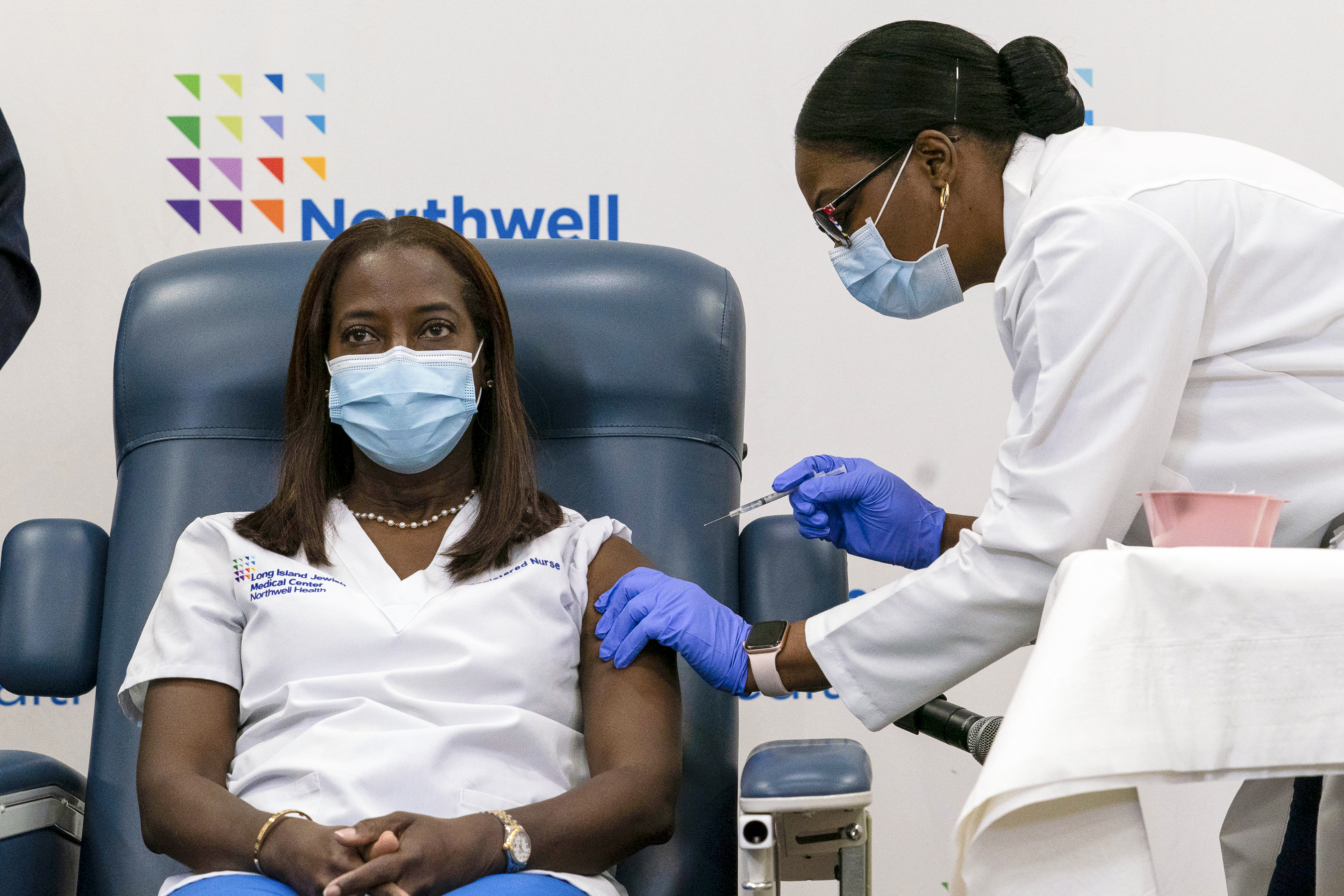A report released by a federal congressional agency this week found that a review of a U.S. vaccine injury compensation program shows that less than 3 percent of completed claims during the first several years of the COVID-19 pandemic are eligible for reimbursement.
The U.S. Government Accountability Office (GAO) on Dec. 18 said that a review of the Health and Human Services (HHS) Countermeasures Injury Compensation Program (CICP) revealed that it received “a surge of 13,333 COVID-19 claims,” which is about 27 times the number of claims in the first decade of the program’s history.
The program completed a review of about a fourth of all claims submitted and found that just 92 of “the completed claims were eligible for compensation,” amounting to about 3 percent, GAO’s report said.
“Most people who receive vaccines or treatments for certain public health threats, such as COVID-19 vaccines, have no serious problems as a result. But with any medicine, there is a rare chance of injury or death,” GAO said, noting that legislation has “limited industry liability” to “encourage the development of these vaccines.”
The program paid about $6.5 million in compensation for claims as of June of this year, with the most serious injuries such as Guillain-Barré syndrome being connected to the H1N1 influenza vaccine, according to GAO’s report.
A smaller portion, the GAO report added, was “paid for injuries related to COVID-19 countermeasures, such as myocarditis (inflammatory heart condition).” For those claims, only $400,000 has been paid out, it found.
Myocarditis, which is inflammation of the heart’s middle muscle layer, and pericarditis, an inflammation of a sac that surrounds the heart known as the pericardium, are side effects associated with COVID-19 vaccines, the U.S. Food and Drug Administration has said.
Additionally, GAO found that the higher amount of COVID-19 vaccine injury claims made to the program were submitted amid “a shortage of staff and outdated information systems as well as having limited scientific evidence concerning whether injuries or deaths were directly caused by COVID-19 countermeasures.”
“Instead, reviewers carefully considered the facts on a case-by-case basis to determine eligibility for benefits, adding time to the claim adjudication process,” the report added.
The report comes just days after House Oversight Republicans said that U.S. vaccine injury reporting systems and related compensation programs are lackadaisical and need improvement.
“Vaccine injury reporting systems created confusion, failed to properly inform the American public about vaccine injuries, and deteriorated public trust in vaccine safety during the COVID-19 pandemic,” they said on Dec. 2.
U.S. officials are also “failing to efficiently, fairly, and transparently adjudicate claims for the COVID-19 vaccine injured,” they said.
The Biden administration this month extended liability protections for COVID-19 vaccine makers, health care providers, and others through 2029, sparking debate over accountability over vaccine injuries.
The extension was signed by Health and Human Services (HHS) Secretary Xavier Becerra on Dec. 11, keeping intact a rule that was first implemented in 2020 under the PREP Act, which grants liability immunity to encourage the development and deployment of medical countermeasures such as vaccines and treatment.
After President-elect Donald Trump’s victory in November, he said he would nominate Robert F. Kennedy Jr., a critic of COVID-19 vaccines and mandates, to lead HHS, which would require Senate confirmation. Kennedy last month said that he doesn’t believe the vaccines prevent transmission of the virus.
“I knew in May of 2020 that the vaccines were not going to protect against transmission because I was actually reading the monkey studies,” he told NBC News, adding that he will not take vaccines away if they are “working.”
“If vaccines are working for somebody, I’m not going to take them away. People ought to have choice, and that choice ought to be informed by the best information. So I’m going to make sure scientific safety studies and efficacy are out there, and people can make individual assessments about whether that product is going to be good for them.”









